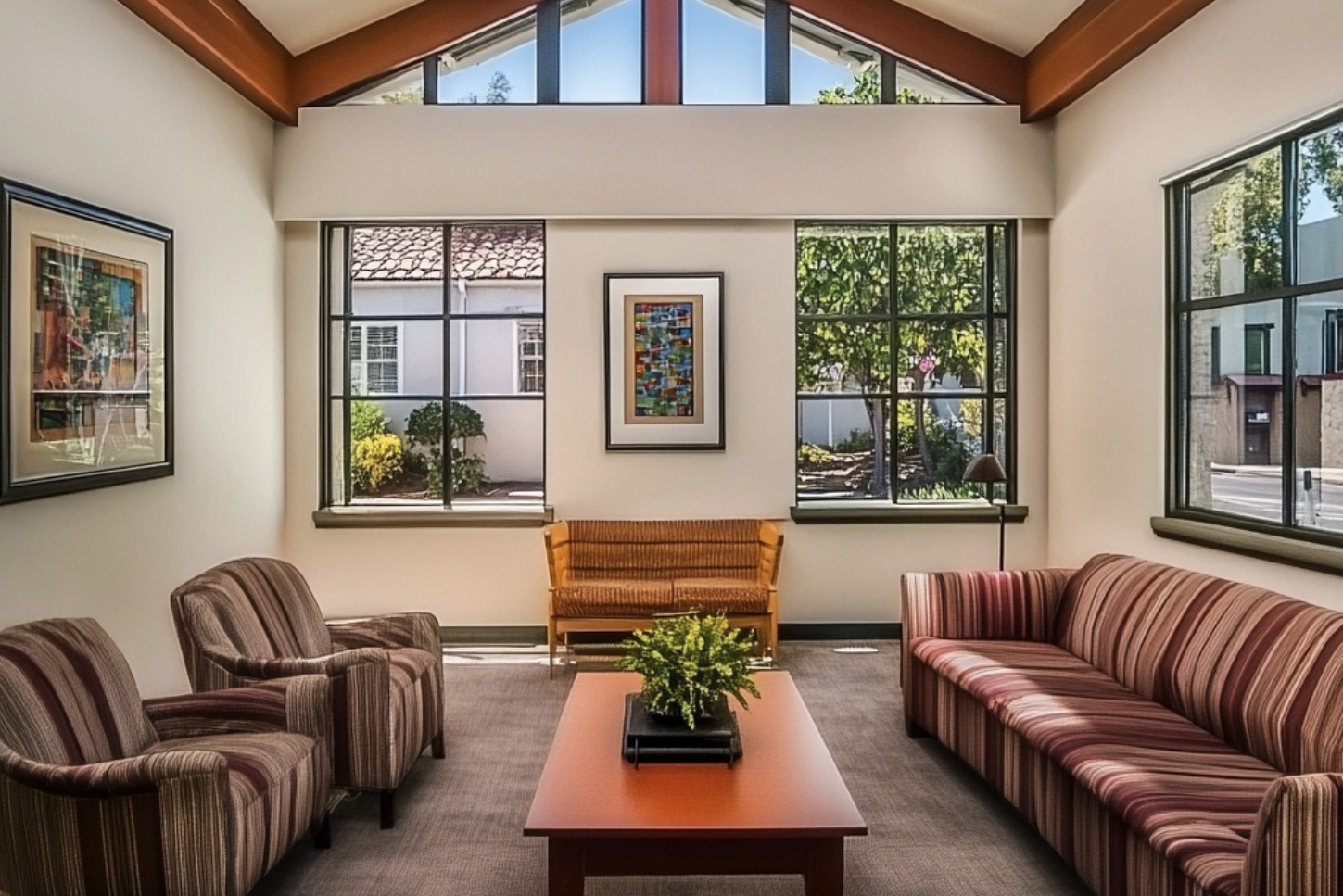Choosing the right assisted living facility is a significant decision for many families. When it comes to finding a place that not only meets the daily living assistance needs but also enriches the spiritual life of its residents, Methodist assisted living communities stand out. These communities are designed to offer not just skilled nursing and medication management but also a deep sense of spiritual and social wellness. With an emphasis on values such as compassion, respect, and dignity, Methodist assisted living facilities provide a supportive environment that fosters both emotional support and independence, making them a preferred choice for many families seeking a blend of quality care and spiritual nourishment.
In the following sections, the article will delve into what Methodist assisted living entails, highlighting how it distinguishes itself from traditional assisted living options. Key aspects such as the integration of bible studies, daily prayer, and the presence of a dog-friendly policy that contributes to the emotional and social wellness of its residents will be discussed. Further attention will be given to the practical considerations such as the entrance fee, monthly cost, and the range of services provided, including memory care, end-of-life support, and transportation assistance. By exploring Methodist senior living in depth, including the unique offerings of Methodist retirement homes and the governance by a dedicated board of trustees, readers will gain comprehensive insights into choosing the right Methodist assisted living facility that aligns with their or their loved ones’ needs and values.
What Is Methodist Assisted Living?
A Methodist assisted living community is a specialized type of senior housing that not only provides essential care services but also emphasizes a faith-based environment. This unique aspect caters to individuals seeking not just physical and medical support but also spiritual nourishment as part of their daily lives.
Key Characteristics of Methodist Assisted Living
- Faith-Based Environment: At the core of Methodist assisted living communities is the commitment to a faith-oriented lifestyle. These facilities often feature on-site chapels and chaplains, providing residents with regular opportunities for worship and spiritual engagement through daily prayers and Bible studies.
- Inclusive Community: While rooted in Methodist traditions, these communities are welcoming to all faiths, ensuring that any senior can find comfort and spiritual support, regardless of their religious background. This inclusivity helps foster a broader sense of community and mutual respect among residents.
- Comprehensive Care Services: Similar to traditional assisted living facilities, Methodist communities offer a wide range of personal care and memory care services. These include assistance with daily living activities, medication management, and transportation services, all delivered within a homelike setting with 24/7 supervision.
- Spiritual and Social Wellness: Beyond the physical care, these communities place a significant emphasis on the social and spiritual wellness of their residents. Activities and programs are often designed around the community’s faith, providing not only comfort but also a sense of belonging and purpose.
- Accessibility to Various Services: Residents have access to various services that address both their medical and non-medical needs. The presence of on-site religious services and spiritual care activities like weekly or daily prayer services underscores the community’s commitment to addressing the holistic well-being of its residents.
Methodist assisted living communities thus offer a unique blend of care, comfort, and spiritual enrichment, making them a suitable choice for seniors looking to maintain their faith actively as part of their assisted living experience.
How Methodist Assisted Living Differs from Traditional Assisted Living
Methodist assisted living communities not only provide the standard care found in traditional facilities but also integrate unique elements that cater specifically to the spiritual and communal needs of their residents. These differences are evident in the personal care, the emphasis on faith-based services, and the inclusive nature of the communities.
Personal Care and Memory Care
In Methodist assisted living communities, the approach to personal and memory care goes beyond the basic necessities. These communities offer a blend of medical, spiritual, and emotional support tailored to enhance the quality of life for each resident. For instance, residents receive comprehensive care that includes daily assistance with living activities, medication management, and access to health services. What sets them apart is the specialized memory care for individuals with Alzheimer’s and dementia. These services are designed to reduce stress and provide a calming, safe environment, which is crucial for residents with cognitive challenges. Facilities are thoughtfully designed with safety features like controlled doors to prevent wandering, and staff are trained to handle the unique needs of memory care residents, ensuring a secure yet nurturing setting.
Faith-Based Services
One of the core distinctions of Methodist assisted living is the integration of faith into daily routines. These communities often feature on-site chapels and regular religious services, catering to residents who wish to maintain their spiritual practices. Regular Bible studies, prayer groups, and worship services are common, providing spiritual nourishment and a sense of belonging. The presence of chaplains offers personal spiritual guidance, enhancing the residents’ emotional and spiritual wellness. This faith-based approach is woven into the very fabric of the community, influencing activities, community gatherings, and the overall atmosphere of the facility.
Open to All Faiths
Despite their Methodist foundation, these communities are welcoming to individuals from all religious backgrounds. This inclusivity is vital in fostering a diverse community where everyone can feel valued and respected. Residents can participate in various religious activities or opt out according to their personal beliefs and preferences. This openness ensures that all residents can benefit from the communal and spiritual support offered, regardless of their faith. The community’s ethos is built on universal values like compassion and respect, which resonate with a broad audience and contribute to a harmonious living environment.
By focusing on both the spiritual and physical well-being of residents, Methodist assisted living communities offer a holistic approach to senior care that distinguishes them from traditional assisted living options. This unique blend of services supports not only the health but also the spiritual life of residents, creating a nurturing environment that respects and celebrates individual beliefs and practices.
Key Features of Methodist Assisted Living Communities
24/7 Supervision
Methodist assisted living communities provide around-the-clock supervision, ensuring that residents receive the necessary care and support at all times. This continuous oversight is crucial for maintaining the safety and well-being of all residents, particularly those who may require immediate assistance. The presence of trained staff members throughout the day and night guarantees that help is always available, whether for scheduled needs or unexpected issues. This feature is especially beneficial for residents with higher care requirements, including those needing frequent medical supervision or memory care.
On-site Chaplains and Chapels
A distinctive characteristic of Methodist assisted living communities is the availability of on-site chaplains and chapels. These facilities are integral to supporting the spiritual life of the residents. Chaplains provide spiritual guidance and counseling, helping residents navigate personal challenges or spiritual questions. The chapels host a variety of worship services, accommodating different denominations and ensuring that all residents have the opportunity to engage in religious activities. This access not only enhances the spiritual wellness of the residents but also fosters a community atmosphere centered around shared values and beliefs.
Daily Prayers and Spiritual Activities
Daily prayers and spiritual activities are core to the ethos of Methodist assisted living communities. These communities place a strong emphasis on integrating faith into everyday life, offering residents regular opportunities to participate in prayer groups, Bible studies, and other spiritual practices. Such activities not only provide spiritual nourishment but also promote a sense of belonging and community among residents. The inclusion of diverse spiritual programs reflects the commitment of these communities to cater to the holistic well-being of their residents, aligning with their physical, emotional, and spiritual needs.
Cost and Financial Considerations
Monthly Costs
Methodist assisted living communities offer a range of costs that reflect the level of care, location, and amenities provided. The 2024 national median cost of an assisted living facility is projected to be approximately $5,511 per month. Specific communities, such as The Langford in Texas, report costs around $5,550 per month, while others may start at about $4,000 per month. Costs can escalate depending on the required services and care level, with some residents experiencing monthly fees between $5,000 and $10,000 based on their personalized care needs.
Entrance Fees
Entrance fees are a significant financial consideration when entering a Methodist assisted living community. These fees can vary widely, often depending on the type of contract selected and the services included. For instance, Continuing Care Retirement Communities (CCRCs) in locations like Apex, North Carolina, offer different types of entrance fees ranging from Type A, which is all-inclusive, to Type C, which offers a balance of included services with some fee-for-service elements. Entrance fees in some communities, such as Aldersgate, range from $112,000 to $640,000, reflecting the community’s amenities and the extent of care services provided.
Add-on Services
Additional costs for services beyond basic living and care are common in Methodist assisted living communities. These add-on services can include medication management, which might cost an additional $552 per month, or transportation services like escorting residents to and from doctor’s appointments, which could add another $66 per visit. Other potential add-on costs include daily living assistance such as dressing, toileting, and bathing, which can increase monthly expenses by approximately $300 depending on the level of service required. It’s crucial for prospective residents and their families to inquire about these fees to fully understand the total cost of living in these communities.
Conclusion
Throughout this exploration, we have unveiled the distinct elements that make Methodist assisted living communities a notable option for seniors seeking care that embraces both their physical and spiritual well-being. Emphasizing a faith-based environment, inclusivity, and comprehensive care services, these communities stand apart in offering a holistic approach to senior living. By integrating daily prayers, spiritual activities, and access to on-site chapels and chaplains, Methodist facilities underscore their commitment to nurturing the spiritual lives of their residents alongside providing excellent medical and personal care.
As families consider the transition to assisted living, the unique offerings of Methodist communities—ranging from memory care designed with the utmost compassion to the spiritual nourishment provided through regular religious services—present a compelling alternative. Finding the right assisted living facility is a pivotal decision that impacts the quality of life for seniors. Methodist assisted living communities not only ensure a supportive and safe environment but also foster a sense of community and spiritual fulfillment, making them an enriching choice for those who value both care and faith in their daily lives.
FAQs
What are some drawbacks of living in an assisted living facility? While assisted living facilities offer numerous benefits such as assistance with daily activities, social opportunities, and enhanced safety, there are also some drawbacks. These include the high costs, potential issues with privacy, and limited medical care options. It is important to thoroughly research any facility you are considering.
What are the fundamental principles guiding assisted living facilities? Assisted living is based on three main principles:
- Person-Centered Care: This principle ensures that care provided is tailored to the individual needs of each resident.
- Practice Ethics at All Times: Assisted living facilities should maintain a foundation of trust and ethical practice.
- Mission Statement: Each facility should have a clear mission statement that guides its operations and services.
At what age should one consider moving to an assisted living facility? There is no universally ideal age to transition to assisted living; it varies based on individual circumstances. However, many residents begin considering such facilities from the age of 62 onwards.
Who typically resides in assisted living facilities? Assisted living facilities primarily cater to older adults. Approximately 50% of residents are at least 85 years old, over 30% are aged between 75 and 84, around 13% are between 65 and 74 years old, and about 6% are younger than 65.
How can new residents adapt to living in an assisted living facility? Adapting to an assisted living environment can be made easier by taking several steps:
- Introduce yourself and get to know your neighbors.
- Familiarize yourself with the caregivers and staff members.
- Maintain regular contact with family and friends.
- Participate in community events and activities.
- Share meals with other residents and staff to build community bonds.












